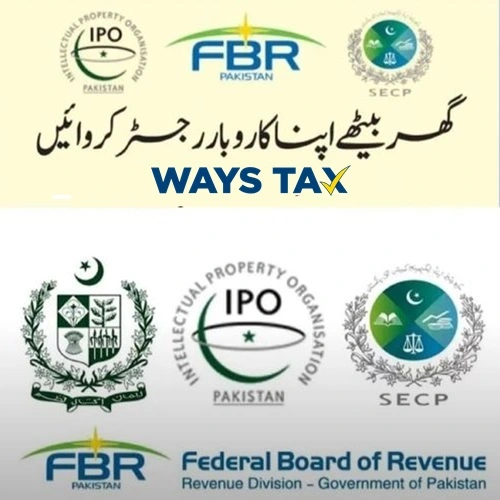How to Start a Business in Pakistan? A Quick Guide
Starting a business in Pakistan is not a piece of cake. Uncertain law and order, political situation, internet outrage, and uncertainties, you have to face everything. But it does not mean that it’s impossible to do business here.
Despite these factors, Pakistan’s startup ecosystem stands out at no 2 in South Asia. You have a great chance to succeed If your business idea is unique, and can create a great impression in the customer’s mind, your business is legalized and registered.
Taking into consideration the insecurities of many of the aspiring entrepreneurs, we have compiled every important information related to how to start a business in Pakistan. It will help you greatly. Let’s start!
Simplify Your Business Registration in Pakistan
Let us handle the paperwork while you focus on growing your business.

Requirements to Start a Business in Pakistan
To start a business in Pakistan, you need:
- Minimum capital: About PKR 100,000, but the actual amount depends on your business needs.
- Documents: If you are starting a company, you need a Memorandum of Association, Articles of Association, CNICs of directors, bank deposit receipt, subscriber authorization, and registration fee.
- Business name: Choose a unique name.
- Business license: Apply to the authority relevant to your business type (e.g., food, travel, textile, LPG).For example
- LPG business – Oil and Gas Regulation Authority
- Travel company – Pakistan Department of Tourist Services
- Textile business – Pakistan Ministry of Textile Industry
- Food business – Pakistan Food Authority
You can register your business online or in person with the SECP.

| Structure | Ownership | Liability | Legal Entity | Taxation |
|---|---|---|---|---|
| Sole Proprietorship | One person | The owner is personally liable | No | The owner pays personal income tax |
| Partnership | Multiple people | Partners are personally liable | No | Partnership income is taxed once, partners pay personal income tax |
| Limited Liability Partnership (LLP) | Multiple people | Partners are not personally liable for debts caused by other partners | Yes | The company pays corporate income tax, shareholders pay personal income tax |
| Private Limited Company (PLC) | Multiple shareholders | Shareholders are not personally liable for debts | Yes | The company pays corporate income tax, shareholders pay personal income tax |
How to start a business in Pakistan? Detailed Overview
Here are the important steps that you need to follow to start a business in Pakistan:
1. Understand the Business in Pakistan
Pakistan has a growing economy and more than 200 million people, offering many business opportunities. To do well, you should know the local business situation.
- This means being aware of cultural values, what consumers like, economic conditions, taxation, etc.
- Getting help from local experts can provide valuable information in these areas, making it easier to face challenges and take advantage of opportunities.
- It is important to know the business laws in Pakistan, which include company registration, taxes, labor laws, and intellectual property.
- Although Pakistan has made progress in its infrastructure, there are still issues like power supply and transport that need careful planning for smooth operations.
2. Explore Business Opportunities in Pakistan
Pakistan has a varied economy that has grown in many sectors. Manufacturing, technology, tourism, agriculture, and services all have different chances.
By doing market research, you can find gaps, look at competition, and learn more about local needs, which helps you place your business in a good way.
3. Identify Profitable industry
Despite uncertain economic conditions, Pakistan provides a generous amount of opportunities for business in Pakistan. Identify the profitable industries that also match your skills and interests
Let’s see the growing opportunities:
| Sector | Emerging Trends |
| Technology and IT Services | Digital Transformation, AI, Cloud Solutions |
| E-commerce and Retail | Digital Marketing, Online Shopping |
| Agriculture | Agritech, Sustainability |
| Renewable Energy | Sustainable Energy Solutions |
| Fintech | Mobile Banking, Digital Payments |
4. Identify Your Business Idea
The first and foremost step to start a business is analyzing the business idea. It must align with your interest and skill and above all the market requirements.
Do in-depth research to understand your target audience, competitor’s strategies, and political and economic challenges you can face
5. Choose The Right Structure For Your Business
| Structure | Ownership | Liability | Legal Entity | Taxation |
| Sole Proprietorship | One person | The owner is personally liable | No | The owner pays personal income tax |
| Partnership | Multiple people | Partners are personally liable | No | Partnership income is taxed once, partners pay personal income tax |
| Limited Liability Partnership (LLP) | Multiple people | Partners are not personally liable for debts caused by other partners | Yes | The company pays corporate income tax, shareholders pay personal income tax |
| Private Limited Company (PLC) | Multiple shareholders | Shareholders are not personally liable for debts | Yes | The company pays corporate income tax, shareholders pay personal income tax |
6. Develop a Comprehensive Business Plan
Make a comprehensive business plan. It should include (but not be limited to) vision, mission, business strategies, marketing channels, and more.
It should also include a detailed analysis of the market, your products or services, pricing strategies, marketing and sales approaches, and financial projections. To accomplish this task, you can use a professional business plan template.
7. Secure Funding
Of Course, you can’t proceed without funding. Securing funding is an important step in starting a business. Your outstanding business plan will help you to secure funding from angel investors, venture capital firms, or government grants and programs.
8. Register Your Business in 4 Steps
Registration of your business is important in Pakistan and gives you leverage in paying taxes. For this
You’ll need to choose a suitable business structure, such as a sole proprietorship, partnership, or private limited company, that depends on your business plan.
Register your business through the Securities and Exchange Commission of Pakistan (SECP), and make sure you get all necessary licenses and permits.
Fast & Hassle-Free Business Registration
From registrations to regulatory compliance, we have got you covered.

Follow these steps to register your business in Pakistan:
Step 1: Obtain a PIN for Company Registration
Start by acquiring a PIN, which is essential for company registration. You can do this by visiting the SECP e-portal or going to their office. The process generally takes less than a day.
Step 2: Reserve the Company Name and Register with SECP
Once you have your PIN, the next step is to reserve your company name and proceed with the registration.
You will have to pay incorporation fees, obtain a National Tax Number (NTN), and register with relevant authorities like the Excise & Taxation Department, SESSI, EOBI, and the local Labor Department. Typically, this step takes about a week.
Step 3: Open a Bank Account for Tax Registration
You will need to open a business bank account for tax purposes. Choose any bank of your preference, visit the branch, and complete the necessary paperwork. This process is usually free of cost and can be completed within a day.
Step 4: Apply for a Sales Tax Registration Number (STRN)
To get a Sales Tax Registration Number (STRN), visit the tax facilitation center at the Federal Board of Revenue’s (FBR) Regional Tax Office (RTO) in Karachi. This step usually takes about a week, and there are no associated fees for acquiring an STRN.
Post-Registration Steps for Companies in Pakistan
Once you register your company in Pakistan, you must follow certain steps to follow the rules and keep things running well. Here is what you need to do:
- SECP Rules: Follow the SECP’sregulations. This means filing yearly reports and required papers.
- Filing Financial Reports: Regularly submit your annual financial reports and other documents to SECP.
- Pay Fees: Make sure to pay any fees to SECP to keep your company active.
Tax Registration: Register with the FBR to get a National Tax Number (NTN). Also, register for sales tax If needed. - Record Maintenance: Keep organized compliance records that are easy to access if SECP or other authorities ask for them.
- Registered Office: Establish a registered office in Pakistan for all official communications.
- Show Compliance Records: Always be ready to present compliance documents when requested by regulatory bodies.
Following these steps can help you avoid fines and keep your business running well.
9. Build a Strong Team
Your business heavily relies on skill and a passionate team. Search for people who have a common vision like yours.
Hire flexible, motivated, and dedicated team members. It’s really important for the long-term growth of your business.
10. Leverage Networking and Mentorship
Networking is the key element in making your business famous. You can build your network through attending conferences, startup events, and meetups to build your connection with other entrepreneurs, investors, and industry experts.
You can also join startup incubators like P@SHA Technology Incubation Center, National Incubation Center, or co-working spaces. It can open doors for partnerships, collaborations, and key market insights.
11. Set Up Essential Business Systems
You should also set up the necessary business systems like accounting software for managing finance and bookkeeping. Moreover, you should also make sure that everything is in its place.
Decide before launching about the office space or remote tools etc. Operational infrastructure: Whether you need office space or remote tools, ensure everything is in place before launching.
12. Develop a Sales and Marketing Strategy
Also, create a marketing plan like what medium you would select to market your products either online or offline.
Moreover, how would you market your business through Google ads, Facebook ads, or TV ads? This is the most important element for your business so choose wisely. It is better to choose multiple ad channels.
13. Understand Taxation and Compliance
Learn about the different taxes that apply to your business, including income tax, sales tax, and more. File and pay tax on time to be safe from penalties. You should also connect with the best taxation company that can assist you in paying your taxes.
Stay Compliant with Tax Laws
Avoid penalties and ensure smooth operations with expert tax compliance services.

Business Opportunities in Pakistan
Despite uncertain economic conditions, Pakistan provides a generous amount of opportunities for business in Pakistan. Let’s see the growing opportunities:
| Sector | Emerging Trends |
| Technology and IT Services | Digital Transformation, AI, Cloud Solutions |
| E-commerce and Retail | Digital Marketing, Online Shopping |
| Agriculture | Agritech, Sustainability |
| Renewable Energy | Sustainable Energy Solutions |
| Fintech | Mobile Banking, Digital Payments |
Benefits of Starting a Business in Pakistan
- Ideal location: Pakistan is closer to the huge markets of China and India.
- Huge domestic market: The country has a population of over 230 million which creates huge potential for local businesses.
- Government incentives: The government offers different subsidies and tax incentives for new ventures.
Opportunities for Foreigners to Start a Business in Pakistan
Foreign entrepreneurs can enter the country but have to fulfill all the requirements laid down by the governments, including getting work visas and registering with the Board of Investment (BOI).
Government Assistance and Support
The Pakistani government supports startups through initiatives like the Small and Medium Enterprises Development Authority (SMEDA), offering grants, training, and mentorship.
Access development programs that help with expanding business, training the workforce, and mentorship.
Frequently Asked Questions
Wrapping Up
The guide above helps you to know How to start a business in Pakistan”. However, we recommend you go through every step with careful planning, legal compliance, and a clear strategy.
Reference Links:

